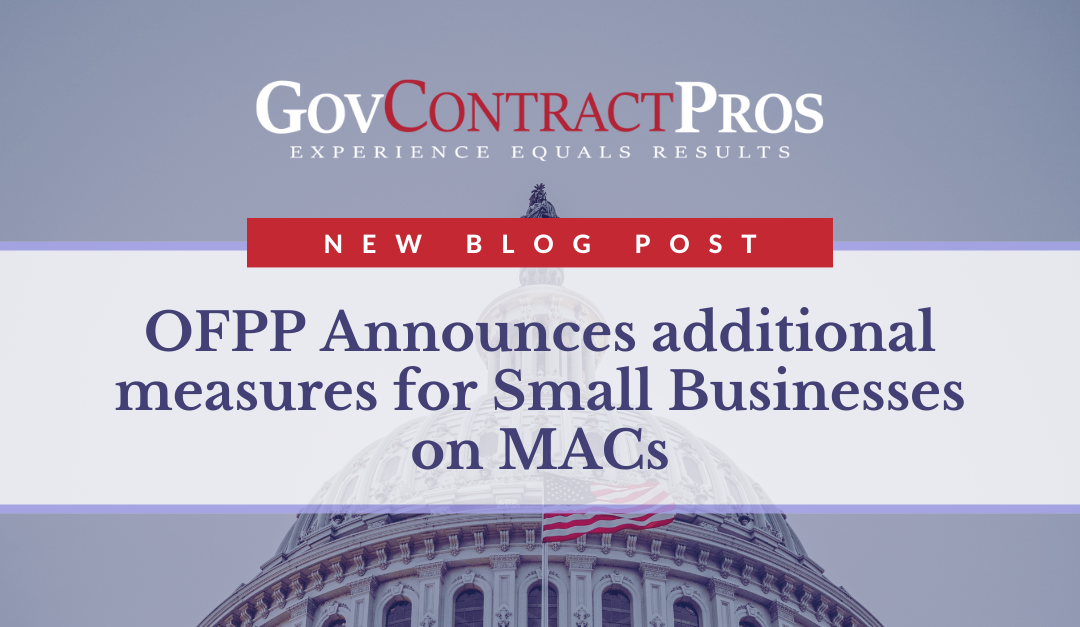GovContractPros (GCP) has examined the Office of Federal Procurement Policy’s (“OFPP”) Memorandum dated January 25, 2024, addressed to Chief Acquisition Officers and Senior Procurement Executives, regarding “Increasing Small Business Participation on Multiple-Award Contracts” (referred to as the “Memorandum”). GCP has identified specific policies within the Memorandum that are likely to benefit small businesses currently competing for or intending to compete for Multiple-Award Contracts. GCP believes that, at a high level, the Memorandum represents a crucial step in enhancing enforcement and awareness of the Rule of Two in federal contracting.
As a reminder, the Court of Federal Claims (COFC) in Tolliver explained: “The Rule of Two is straightforward and dictates that the contracting officer shall set aside any acquisition over the simplified acquisition threshold for small business participation when there is a reasonable expectation that – (1) Offers will be obtained from at least two responsible small business concerns, and (2) Award will be made at fair market prices.” In this landmark decision, the COFC ruled that an agency must conduct this Rule of Two analysis before utilizing an existing multiple-award indefinite delivery indefinite quantity contract.
Returning to the OFPP Memorandum, GCP highlights several policies that could positively impact small business participation in Multiple-Award Contracts. Firstly, as part of acquisition planning, the Memorandum instructs agencies to involve small business specialists earlier in the acquisition planning process for all multiple-award contracts. This is to ensure that agencies “carefully consider total or partial small business set-asides when planning new multiple-award contracts.” To reinforce this requirement, the Memorandum mandates small business specialists to coordinate with Small Business Administration (SBA) Procurement Center Representatives (PCRs) when the acquisition is not proposed as a set-aside. While GCP commends this innovative approach to enforcement and collaboration, there is concern that the current cadre of approximately 50 SBA PCRs may struggle to handle the increased workload, potentially leading to procurement delays.
Secondly, the Memorandum stipulates that “on ramps” should be considered for long-term contracts, i.e., those lasting more than five years. Requiring agencies to consider procedures for admitting additional small businesses to these contracts is an unexpected and welcome policy from OFPP. Until now, failure to submit a proposal for certain multiple-award contracts has effectively barred small businesses from accessing those contracts for years, if not decades. This could and should change.
Finally, concerning the Rule of Two, contracting officers must now document the basis for their determination not to use set-aside procedures, including on multiple award contracts. This prescribed determination is significant and may well dissuade contracting officers from deviating from set-aside procedures.
GCP commends OFPP for its bold and innovative policies aimed at promoting small business participation in multiple-award contracts. However, it is acknowledged that these policies may be slow to be adopted by certain agencies, and effective training and advocacy may be required. If you have questions regarding the OFPP Memorandum, the Rule of Two, or need assistance with contracting officers in these matters, please contact Trevor Skelly.


Recent Comments